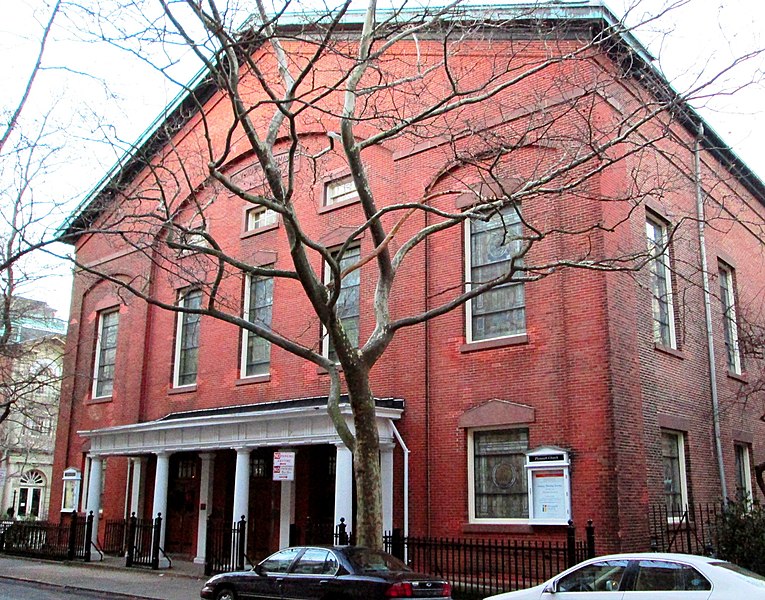One of the stops on the Best of Brooklyn/Brooklyn Revolution Walking Tour is Plymouth Church. The National Historic Landmark church, along with its founding minister, the charismatic Henry Ward Beecher, had a long history of abolitionist activism from its inception in 1847 through the Civil War. The Reverend Beecher’s arresting sermons were attended by the likes of Frederick Douglass and Sojourner Truth. Douglass was engrossed as the impassioned Beecher “poured forth one continuous strain of eloquence for more than an hour,” even subduing “the miserable attempts at interruption” from opponents of his anti-slavery speech.[1] Eventually aligning with the Republican party, Plymouth countered the prevailing Democratic political and social attitudes in Brooklyn and neighboring New York City. They used the church basement as a stop on the Underground Railroad to shelter escaped slaves along their journey and advocated for manumission through sermons and journal articles. Moreover, Plymouth and Beecher were influential in Lincoln’s breakthrough “Right Makes Might” speech at the Cooper Institute in New York City in February 1860, facilitating his subsequent rise to the presidency.[2]
Beecher’s most remarkable achievement during the Civil War was his advocacy for the Union cause in the United Kingdom. In October 1863, through a series of five speeches given throughout Great Britain—and of his own accord—Beecher helped thwart the potentially devastating effects of Britain’s economic and military support of the Confederacy. His provocative speeches to the laboring classes were both a rebuke of the British in their attempts to secure Southern cotton and a humanitarian plea to the British people to support the Union cause and American freedom. Both the British and American press praised him for contributing to the Union victory. Furthermore, near the end of the war, President Abraham Lincoln acknowledged the contribution of Beecher’s adroit and unofficial diplomacy. When planning the rededication of Fort Sumter in South Carolina on April 14, 1865, a grateful Lincoln personally demanded that Beecher give the speech for the raising of the American flag, “because if it had not been for Beecher, there would have been no flag to raise.”[3]
[1] Frederick Douglass, “Anniversary of the American and Foreign Anti-Slavery Society,” The North Star (Rochester, N.Y.), May 16, 1850, 2, Library of Congress, last accessed October 16, 2021, https://www.loc.gov/resource/sn84026365/1850-05-16/ed-1/?sp=2&r=0.39,0.026,0.447,0.186,0.
[2] Frank Decker, Brooklyn’s Plymouth Church in the Civil War: A Ministry of Freedom (Charleston: The History Press, 2013), 95-97.
[3] Emanuel Hertz, “Emanuel Hertz to William C. Beecher, December 10, 1926, Beecher Family Papers, Sterling Memorial Library, Yale University, New Haven.










